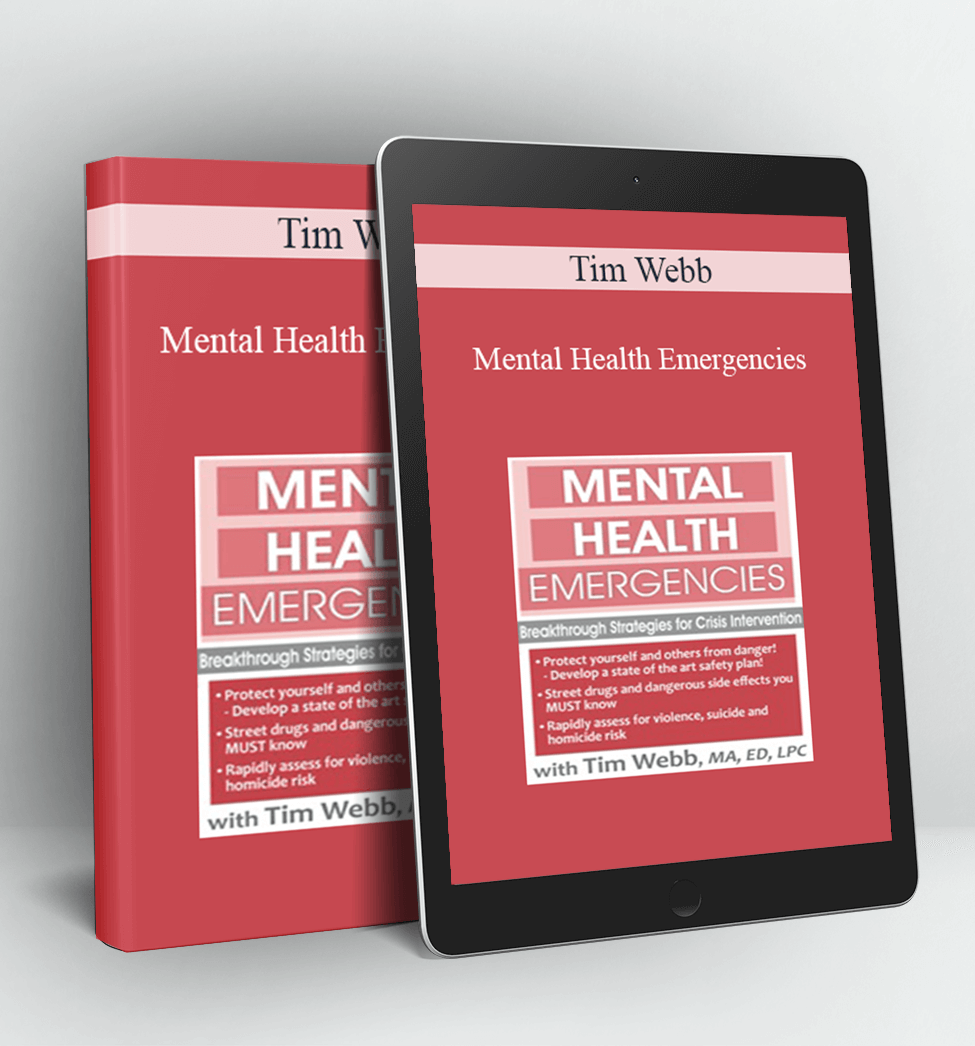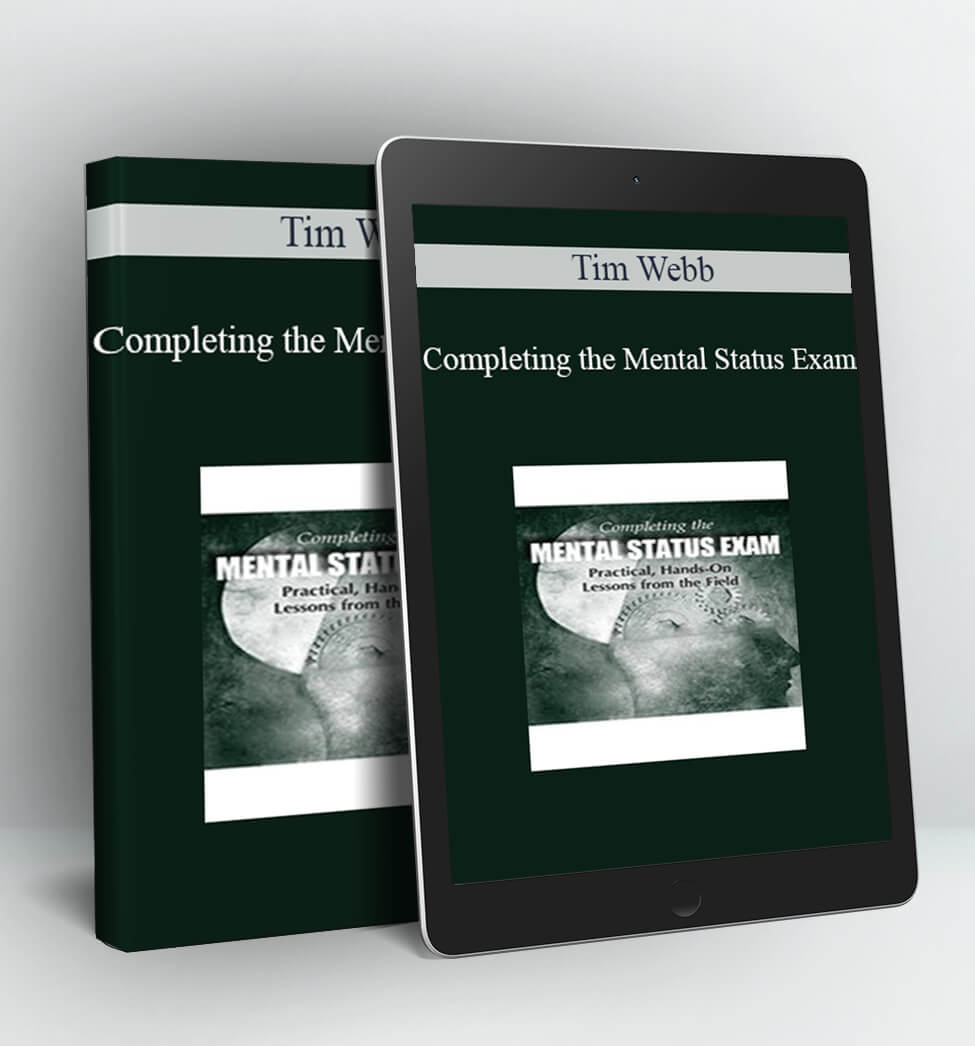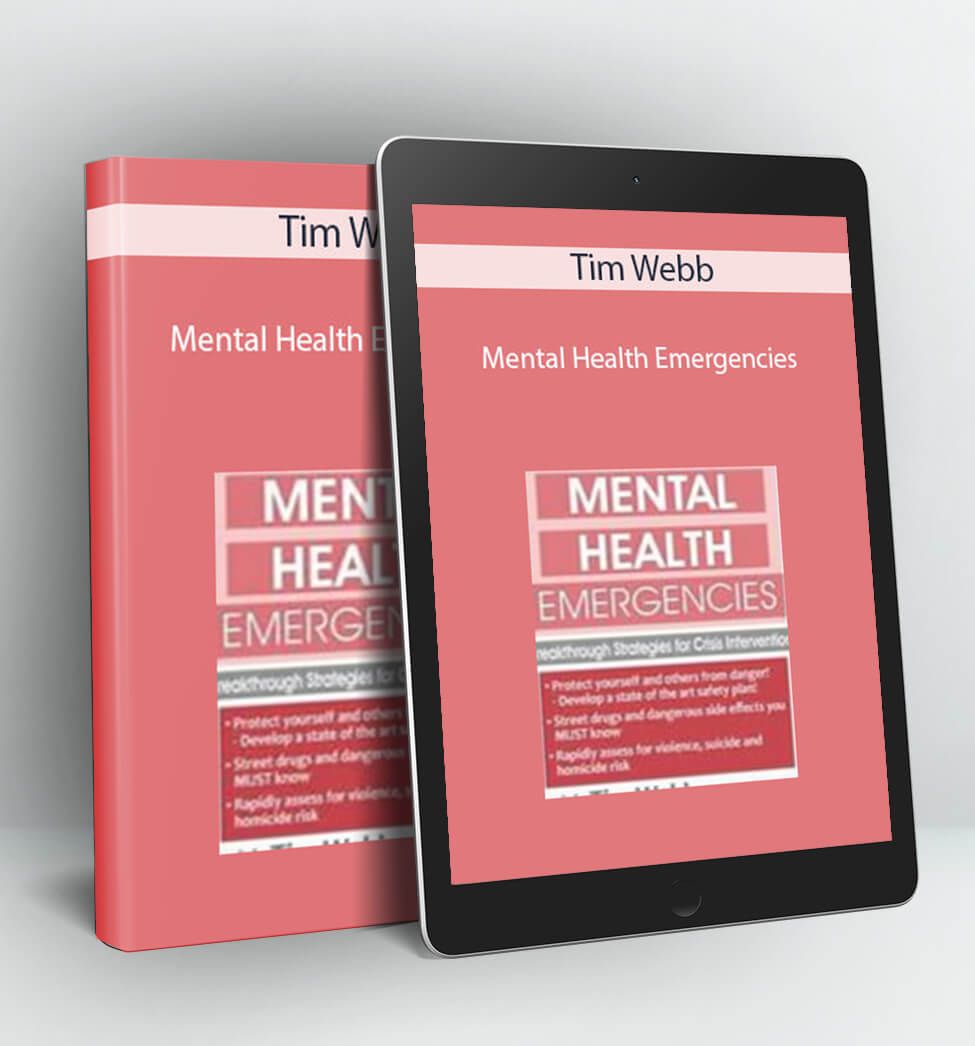Mental Health Emergencies: Breakthrough Strategies for Crisis Intervention – Tim Webb
In November, 2014 a 68-year old male was hospitalized near Minneapolis because he was suffering from paranoia and episodes of confusion. Hours later, the man assaulted multiple nurses when he chased them out of their station, furiously swinging a metal pole. One nurse suffered a collapsed lung and another fractured her wrist, along with bruises and cuts. The man then fled the hospital and ran for blocks until police could finally take him down.
As a clinician, you will inevitably be faced with moments of crisis.
Preparing for the worst is vital to the safety of your client, yourself and others in the community. What would you have done in that scenario? In hindsight, were there warning signs hospital workers missed during intake?
As an in-take director for an inpatient psychiatric treatment center and over 20 years’ experience, Tim Webb, MAEd, LPC, will teach you the skills you need to quickly assess, triage, manage and treat clients in crisis.
Leave this seminar with new confidence that you can:
- Protect your liability through proper documentation
- Develop a state-of-the art safety plan
- Identify the latest street drugs your client may be using and the dangerous side effects
- Rapidly assess for violent, suicidal or homicidal clients
- Teach your staff and colleagues how to respond
- Examine legal and ethical implications in emergency situations.
- Complete a mental status exam to better assess for psychotic symptoms.
- Demonstrate strategies to assess for suicidal, threatening, or dangerous clients.
- Describe proper documentation to avoid legal actions and insurance disputes.
- Develop effective safety plans and crisis interventions for suicidal and psychotic patients.
- List current street drugs and their effects on client’s mind and body.
- Recognize which psychotropic medications a client is using for their diagnosis.
Ethical Responsibilities and Legal Obligations in Emergency Situations
- Tarasoff court case- duty to protect
- Emergency Medical Treatment and Labor Act (EMTLA)
- Reporting abuse and neglect
- Documentation
- Justify appropriate level of care to insurance companies
- Covering yourself and avoiding the courtroom
Mental Status Exams
- Evaluative tools and exams
- Differentiate signs, symptoms and behaviors
- Learn which psychotic symptoms correlate to psychiatric vs. organic issues
- Substance influence on mental status
- Spot signs of delirium
- Role of trauma and substances in diagnosis
Suicide Risk Assessment
- High risk populations: Elderly, teens, veterans
- Contract of Safety
- Evaluation: 2 vital questions to ask
- Interview strategies and techniques
- When to hospitalize
- Case examples
Violent or Homicidal: Assessment & Intervention
- Identify clients most at risk
- PTSD vs. Conduct Disorder/Anti-social Personality Disorder
- Important time frames
- Significant stressors
- Interview Strategies
- Triggers for violence
- The power of choice
- Physiological states
- Handling threats to their workplace, school and home
- Next steps to help protect others
- Case examples
Danger in the Chemically Dependent: Alcohol, Street Drugs & Prescriptions
- Warning signs to look for when client has used:
- Alcohol
- Prescription drugs
- Synthetics
- Heroin, Cocaine, Meth Amphetamines
- Bizarre behaviors, lowered inhibitions and loss of body control
- Need for detoxification
- Keeping yourself safe- who to contact now
- Case examples
Proof Content:
Delivery Method:
After your purchase, you’ll get access to the downloads page. Here, you can download all the files associated with your order.
Downloads are available once your payment is confirmed, we’ll also send you a download notification email separate from any transaction notification emails you receive from Coursedownloads.









